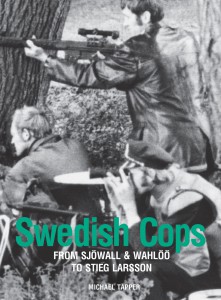Swedish Cops
From Sjöwall & Wahlöö to Stieg Larsson


Average rating: ![]()
| 0 | rating | |
| 0 | rating | |
| 0 | rating | |
| 0 | rating |
Your rating: -
Book Presentation:
Michael Tapper considers Swedish culture and ideas from the period 1965 to 2012 as expressed in detective fiction and film in the tradition of Maj Sjöwall and Per Wahlöö. Believing the Swedish police narrative tradition to be part and parcel of the European history of ideas and culture, Tapper argues that, from being feared and despised, the police emerged as heroes and part of the modern social project of the welfare state after World War II. Establishing themselves artistically and commercially in the forefront of the genre, Sjöwall and Wahlöö constructed a model for using the police novel as an instrument for ideological criticism of the social democratic government and its welfare state project. With varying political affiliations, their model has been adapted by authors such as Leif G. W. Persson, Jan Guillou, Henning Mankell, Håkan Nesser, Anders Roslund and Börge Hellström, and Stieg Larsson, and in film series such as Beck and Wallander. The first book of its kind about Swedish crime fiction, Swedish Cops is just as thrilling as the novels and films it analyzes.
See the publisher website: Intellect Books
> From the same author:
> On a related topic:
Masculinity in the Golden Age of Swedish Cinema (2014)
A Cultural Analysis of 1920s Films
The Cultural Practice of Immigrant Filmmaking (2019)
Minor Immigrant Cinemas in Sweden 1950-1990
Swedish Cinema and the Sexual Revolution (2016)
Critical Essays
Dir. Elisabet Björklund and Mariah Larsson
I Won't Grow Up! (2015)
The Comic Man-Child in Film from 1901 to the Present
Subject: Genre > Comedy/Humor